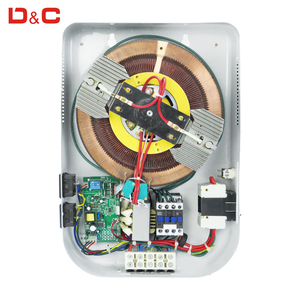Understanding Servo Controller IC
A servo controller IC (Integrated Circuit) is a crucial component in robotics and automation, providing the essential ability to control servo motors with precision and efficiency. These ICs are specially designed to receive command signals and convert them into appropriate control signals, enabling smooth movement and positioning of servo motors. The use of servo controller ICs spans various applications, from simple hobby projects to complex industrial automation systems.
Types of Servo Controller IC
Servo controller ICs come in various types, each tailored to specific use cases and performance needs. Here are the main classifications:
- Analog Servo Controller ICs: These controllers utilize analog signals for precise control over servo movements. They are ideal for low-speed applications where linear response is critical.
- Digital Servo Controller ICs: Leveraging digital signals, these ICs offer enhanced accuracy and functionality, such as programmable position control and feedback management.
- Closed-loop Servo Controller ICs: This type features feedback systems that continuously monitor the servo’s position, ensuring precise movements and adjustments in real-time.
- Open-loop Servo Controller ICs: Open-loop systems are simpler and do not utilize feedback. They are best suited for applications where exact positioning isn't as critical.
Applications of Servo Controller IC
The applications of servo controller ICs are vast and varied, making them indispensable in modern engineering and technology. Here are some common applications:
- Robotics: Used in robotic arms and mobile robots, servo controllers ensure accurate motion and positioning for various tasks.
- Industrial Automation: Servo controller ICs are employed in conveyor systems and CNC machines, optimizing performance and productivity.
- Home Automation: In smart home devices, such as automated curtains or smart locks, they enable precise movement and operation.
- Entertainment Systems: Used in animatronics and remote-controlled models, providing dynamic movement and lifelike action.
Features and Advantages of Servo Controller IC
When choosing a servo controller IC, understanding its features and advantages helps in selecting the right component for your project. Below are some notable features:
- High Resolution: Many servo controller ICs offer high-resolution control, allowing for minor adjustments with high precision.
- Programmability: Modern digital servo controller ICs often come with programmable settings, enabling users to customize movements and behaviors.
- Compact Design: The small size of these integrated circuits allows for space-efficient designs in various applications.
- Energy Efficiency: Servo controller ICs are designed for low power consumption, making them more eco-friendly and reducing operational costs over time.
In conclusion, incorporating servo controller ICs into your applications can revolutionize the way systems respond to commands, enhancing both functionality and efficiency. Whether for hobbyist projects or industrial systems, understanding the options available ensures you make informed choices tailored to your needs.



























































































































































